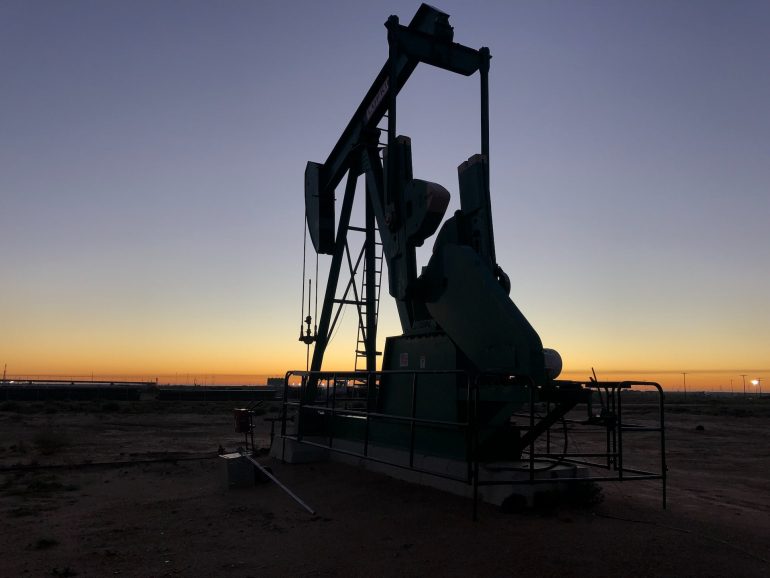Reliant on oil for economic survival, Iraq is warned that it’s on the verge of a fiscal “intensive care” situation unless it diversifies. This comes in the wake of global efforts to mitigate the climate impact of fossil fuels.
Iraq’s abundant oil reserves could sustain current production rates for a century. However, the nation has been sluggish in adapting to the global pivot away from hydrocarbons. For years, the energy sector has faced pressure to reduce greenhouse gas emissions, aiming to limit global warming to 1.5 degrees Celsius above pre-industrial levels.
In April, G7 nations – including Britain, Canada, France, Germany, Italy, Japan and the U.S. – pledged to fast-track their departure from fossil fuels, aiming for carbon neutrality by 2050.
However, with oil sales forming 90% of Iraq’s budget revenue as the country recovers from years of intense conflicts and political turmoil, Iraq remains overly dependent on the sector.
“The whole economy depends on oil and the price of oil,” comments political scientist Ammar al-Azzawi. “If oil plunges, our economy will go to intensive care.”
His solution is to bolster Iraq’s industrial, agricultural and tourism sectors before the world’s transition to alternative energy sources accelerates.
In March, the European Union announced plans to halt the sale of combustion engines in new cars by 2035, a move symbolizing the worldwide energy shift.
Ali al-Saffar, climate director at the Rockefeller Foundation in New York, warns that the global “energy transition is taking place, but not yet at the speed and scale that scientists and experts tell us is necessary to avert the worst impacts of climate change.”
Already, Iraq’s 42 million people are bearing the brunt of climate change, with extended droughts and frequent sandstorms. The United Nations ranks Iraq as one of the five countries most impacted by climate change.
The perils of Iraq’s oil dependence became glaring in 2020 during the COVID-19 pandemic when global demand for crude oil plummeted.
“Iraq’s export revenues fell precipitously and poverty rates doubled in the country almost overnight,” Saffar recounts.
Oil revenue, necessary for reconstruction after decades of conflict, constituted 60% of public investment in 2021, compared to less than 17% in 2010, according to a World Bank report from March.
However, the World Bank adds, the ease of generating and redistributing oil income to uphold political power structures dampens the impetus for reforms. It urges Iraq to capitalize on current high oil prices to commence its transition from oil reliance or brace for more costly and difficult reforms in the future.
Muzhar Saleh, economic adviser to Iraq’s prime minister, says Baghdad will “diversify the economy” in the next 10 years. Government focus will be on agriculture, major projects funded through public-private partnerships, and associated industries like fertilizer production.
With the introduction of modern irrigation technologies, Saleh aims to boost Iraq’s use of arable land from less than one million hectares currently to 1.5 million.
“In 50 years, we will not be as dependent on oil as we are today,” he asserts.
To kick-start necessary reforms for “green growth,” the World Bank estimates that Iraq will need to spend $233 billion by 2040.
These investments will fund a growth in the private sector’s economic role, reform the nation’s failing electricity sector and decrease gas flaring, a polluting byproduct of crude extraction.
Despite a shaky electricity sector, Iraq plans to have renewable energies account for a third of its electricity needs by 2030. Several contracts for solar plants, including with France’s TotalEnergies, have already been signed.
But the shift to greener technologies, such as electric vehicles, is fraught with challenges in a country where electricity supply is unreliable.
“The next step is electric cars… within two or three years,” says Baghdad car salesman Hassanein Makkie. But he adds, “It takes a certain infrastructure to produce electricity in large quantities. We are not ready.”
AFP


